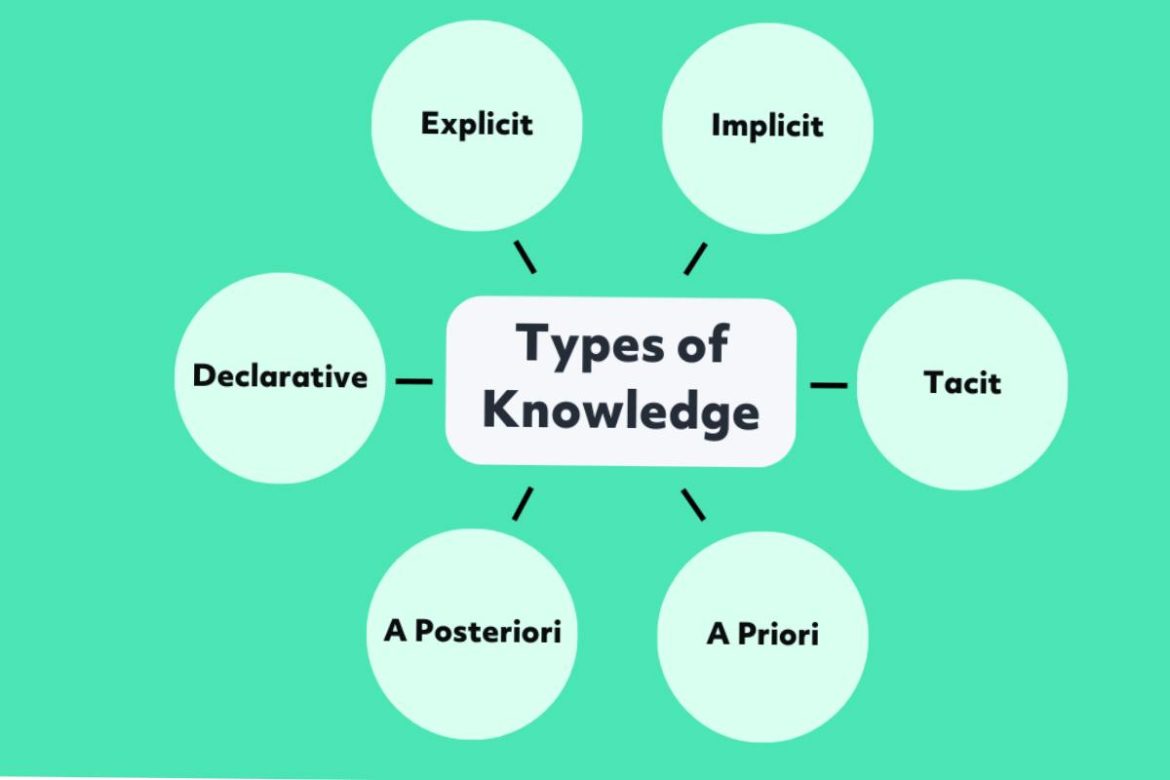You might have mentioned the word knowledge many times and thought it was a simple concept. But, have you ever asked yourself, “What is knowledge?” Did you know that there are different types of knowledge? It comes in many forms and serves various functions in our personal and at work.
Understanding the different types of knowledge helps us better acquire, apply, and share knowledge effectively. As we will see, applying different kinds of knowledge for different occasions creates the most value.
Table of Contents
1) Declarative Knowledge
Declarative knowledge is about facts, numbers, concepts, theories, and rules of thumb. This knowledge is stored in data form or books and focuses on ‘what,” who,’ and ‘where.’ Examples include knowledge of a mathematical formula, a historical date, and vocabulary words.
2) A Posteriori Knowledge
A posteriori knowledge refers to knowledge dependent on experience or empirical evidence. People acquire posterior knowledge through sensory experience and observations of the world. For example, when you notice the sky is blue or raining. You can only know that if you see the sky or the rain.
3) Tacit Knowledge
Some people have skills and abilities that are difficult to explain. Mainly, they gain knowledge through experiences, intuition, and observations. This is called tacit knowledge. It is difficult to articulate, and people are often unaware of the details of their tacit knowledge. It’s also primarily personal and context-specific.
4) Procedural Knowledge
Unlike declarative knowledge, procedural knowledge focuses on methods of inquiry and criteria for using skills, algorithms, techniques, and strategies.
Examples include how to write an essay, baking a cake from a recipe, and problem-solving procedures in math and science.
Procedural knowledge arms learners with problem-solving knowledge for specific results. While one can learn information in declarative knowledge relatively fast, procedural knowledge and skills can take more time to acquire.
5) A Priori Knowledge
Unlike a posteriori knowledge, a priori knowledge is independent of experience. This type of knowledge does not rely on empirical evidence from the senses. You only acquire it before or independently of experience.
Concepts that form the necessary prerequisites of sensory experience are a priori. For example, space, time, causality. Our sensory experiences presuppose an understanding of space, time, and causality.
6) Implicit Knowledge
Implicit knowledge refers to knowledge that a person has but may have difficulty explicitly expressing or articulating. But what is knowledge without expression? Its unspoken, unarticulated knowledge, such as habits, customs, behaviors, and attitudes, provides context for all other knowledge.
They are often called “know-how” or tacit knowledge. Examples include being able to ride a bike, being polite at a formal function, how to help a struggling student maintain dignity and self-esteem.
7) Explicit Knowledge
Explicit knowledge is easily articulated, codified, accessed, and verbalized. It can be easily transmitted to others. One key characteristic of explicit knowledge is it’s tangible – it can be documented in writing, diagrams, databases, etc.
It can also be expressed formally using language – procedures, manuals, documents, mathematical expressions, etc. Additionally, it consists of facts, rules, and relationships that can be clearly stated.
It’s easy to transfer to others through training, books, discussion, etc. This differs from tacit knowledge, which is hard to formalize and communicate.
What is Knowledge? In Summary
So, what is knowledge? How do people acquire new knowledge? Examining the forms, applications, and issues around knowledge shapes its conception across domains. But at its basic level, knowledge drives understanding through facts, data, and insights – however true, valid, or evolving they may be.


